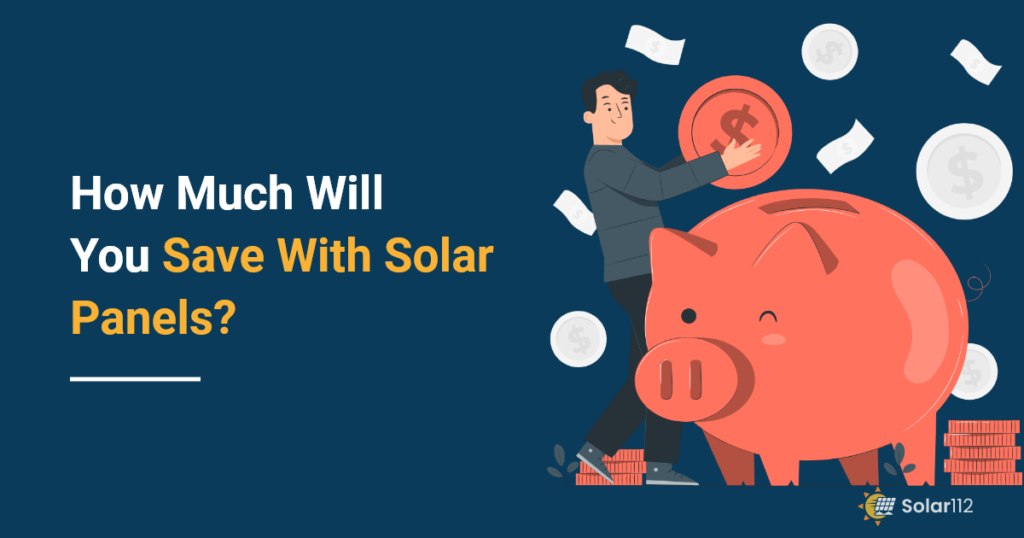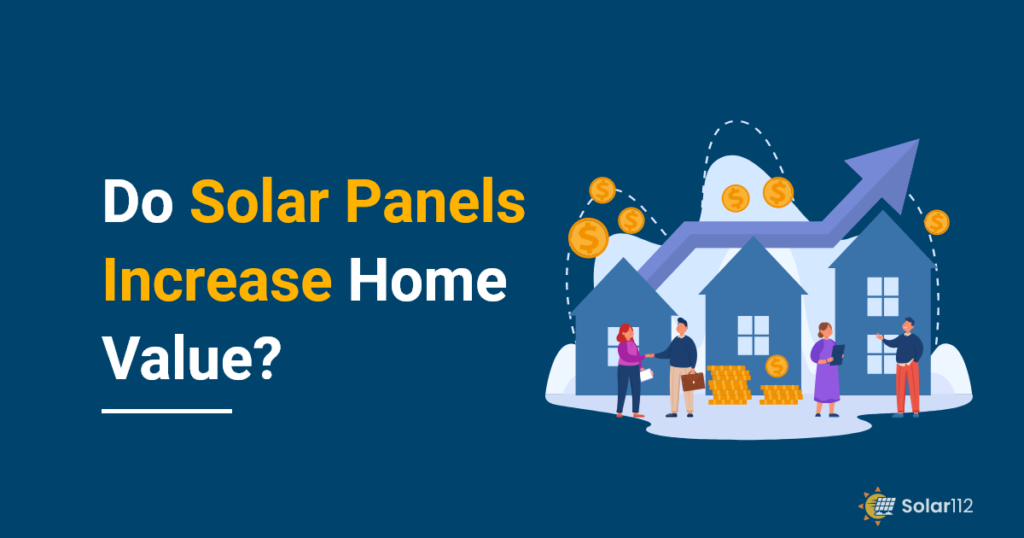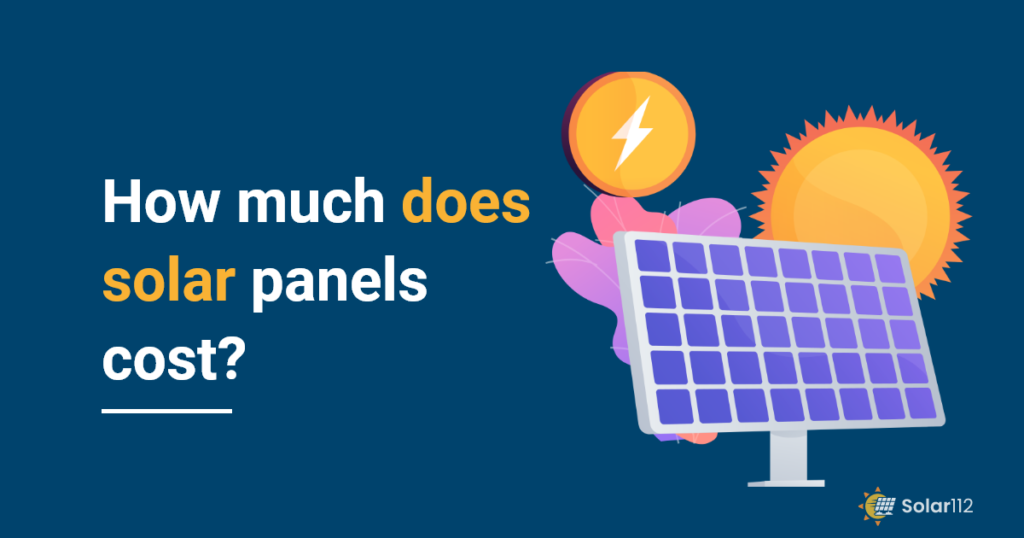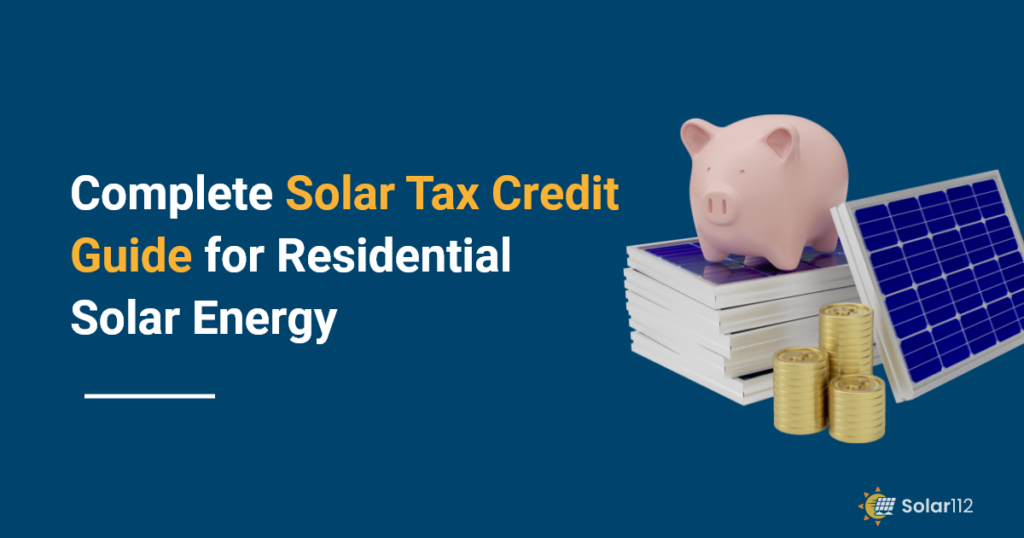Solar panel installation can save thousands of dollars by slashing your utility bills. If you don’t know how much will you save with solar panels, our formulas will greatly help. Give this post a quick read and get all your queries answered in one go.
Let’s dive in!
While the environmental benefits of solar panels are notable including curtailing the rising issues of climate change, the biggest and often overlooked advantage of PV systems installation is financial gain.
Key Takeaways
- The average homeowner in the United States can save around $42,000 over 25 years after installing solar panels. The exact amount you save will depend on several factors, including the size of your system, your location, and your electricity usage.
- The initial cost of solar panels can be high, but the savings over time can be significant. The average cost of a solar panel system in the United States is around $16,000, but there are a number of incentives available to help offset the cost.
- There are a number of federal and state incentives available to help homeowners save money on solar panels. These incentives can include tax credits, rebates, and grants.
- Solar panels can help you protect yourself from rising electricity costs. Electricity prices are expected to continue to rise in the coming years, which means that your savings from solar panels will only increase over time.
- Solar panels are a clean and renewable energy source that can help you reduce your carbon footprint. Solar panels do not produce any emissions, so they are a great way to help protect the environment.
Lowering energy bills and carbon footprint appeals to many people. However, the high upfront cost of solar installation, tax credits, and navigating through various solar financing options often make the green switch a bit complicated for homeowners.
Also, the most common question that pops into most homeowners’ heads is ‘are solar panels worth it? What impact can green energy have on their house? How much will you save with solar panels?
Don’t worry! We will answer all these questions in our next section.
But first, you should understand how much solar panels will cost you to determine the exact amount of savings.
Solar Panels: Average Cost of Equipment, Installation, and Maintenance
How much do solar panels cost? This is one of the biggest queries that pop your head whenever you think of going solar.
According to Wood Mackenzie’s report, the cost of solar panels was $3.28 per watt in the first quarter of 2023. This figure is higher than 2022 which was $3.07 in the same period. However, this report also says that solar panel costs are expected to drop again.
The average cost of an 8.6 kilowatts residential solar system without tax credits and incentives as of June 2023 is $31558. However, the exact cost depends on the size of the solar system. A small system can cost $5000 and a large one can go beyond $40000.
Talking about the installation, the cost for a 6 kilowatt system installation ranges between $13000 to $20000. If a household opts for solar batteries to store excess energy during the full sunlight to power up the home during outages and rainy days, then its cost depends on the size of the battery. A small single emergency battery costs around $ 200 and a full lithium-ion system will cost $14000.
Regarding solar system maintenance, the PV system requires no upkeep for 25 to 30 years of its installation. If you clean your solar panels periodically and make sure they are free from damaging elements, you don’t need to worry much about maintenance until the panels start degrading.
How Much Will You Save With Solar Panels Installation?
Your energy savings with solar panel installation depend on the following three major factors.
Sunlight Absorption
As you already know, solar panels generate electricity according to the amount of sunlight they get. Therefore, solar panels installed in states like Arizona, California, and Florida generate sufficient electricity as they receive abundant sunlight throughout the day.
Cloudier states like New York or Washington also get decent sunlight so panels generate a good enough amount of electricity to power a house. However, homeowners should consider investing in a backup battery system to make their panels absorb maximum energy during optimal conditions.
Local Electricity Rates
The rate of electricity in your locality helps determine the exact amount of savings you will make after switching to green energy. For example, if an average homeowner is paying 15 cents per kWh for energy consumption and the installed panels generate 1000 kWh every month, they can save up to $150 in their electricity bills.
Additionally, every state in the United States has a different rate of electricity. So, the actual savings you would do depends on which city you are residing in. You can read more about this under ‘average solar savings in the top 50 cities in the US’ in this post.
Net Metering
Many states run net metering programs for households that have installed solar panels or are planning to go green soon. Under this program, homeowners can send the surplus energy back to the grid. For this, they can get energy credits from their utility company.
Ways to Determine Savings on Utility Bills
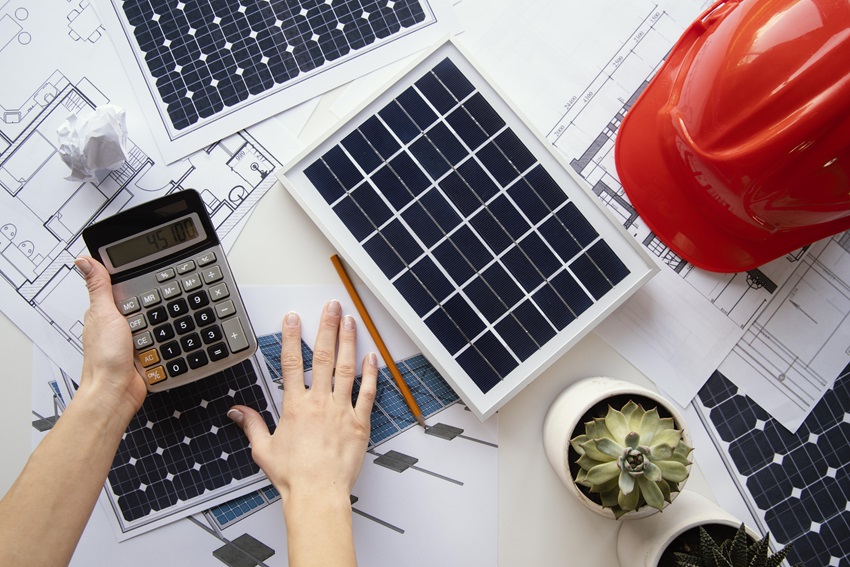
For many homeowners, a solar project is a medium to long-term investment. Depending on the type of your solar system and its size, energy consumption, and other factors, play a key role in payback through your monthly energy savings.
To estimate your solar savings, you need to determine the payback period or the time your system will take to meet the cost of its installation.
Here is the simple formula to calculate your total solar savings.
Find out the upfront cost of installation then subtract it from all tax credits and incentives you got. This will give you the net cost of your system.
Next is, estimating how much will you save with solar panels. You will divide the net cost of the system with savings you will do annually. The amount you will get is your solar payback period in years.
Let us discuss these pointers in more detail:
Find Out the Upfront Cost of Installation
As solar is a big purchase for any household, consider getting multiple quotes from different installers in your city. Ask all the questions and concerns regarding the project from your shortlisted companies. Then settle for one that suits your needs and budget.
Subtract the Tax Credits and Incentives
As federal tax credits, rebates, and other solar incentives vary from state to state, the most common percentage that homeowners are eligible for in the US is 30%. Depending on the size of your solar system, subtract the tax credits you are eligible for.
Evaluate Monthly Electricity Savings
Savings with solar depends on the number of panels installed in a property, amount of energy consumption, etc. Evaluate the last 6 months of your electricity bills. Check bills during electricity fluctuations and seasonal changes. Now, estimate how much will can you save with solar panels.
If you think you can cover 100% of your electricity bills using renewable energy and net metering then you could save a lot. For example, if your average electricity bill for a month is $125, you can save $1500 annually.
The Average Solar Savings in the Top 50 Cities of the US
In the United States, the annual consumption of electricity on average is 10715 kWh (kilowatt hours). This means 892 kWh/month of energy is consumed by a residential utility customer on average.
If we multiply this figure with 0.14 per kWh which is the rate of national average electricity, the electricity bill will be up to $125 for each month. This means with solar energy installation, an average household in America can save $1500 on their annual electric bills.
To understand more clearly, let’s go through the table below which displays how much will you save with solar panels on average in the top 50 cities of the US that have cash-purchased solar systems for their rooftops.
| State | City | Cost of Electricity per (kWh) | Solar Production Per Year (kWh) | Energy Bill Savings in 25 Years |
|---|---|---|---|---|
| Arizona | Mesa | $0.13 | 9540 | $45,217 |
| Phoenix | $0.12 | 9366 | $40,977 | |
| Tuscan | $0.13 | 9498 | $45,018 | |
| California | Los Angeles | $0.21 | 9,066 | $69,413 |
| Long Beach | $0.21 | 9,012 | $68,999 | |
| Fresno | $0.21 | 8,694 | $66,565 | |
| Oakland | $0.21 | 8,646 | $66,197 | |
| San Diego | $0.29 | 9,024 | $95,412 | |
| Sacramento | $0.21 | 8,538 | $65,370 | |
| San Jose | $0.16 | 8,435 | $49,205 | |
| San Francisco | $0.24 | 8,922 | $78,682 | |
| Colorado | Denver | $0.14 | 8,682 | $44,315 |
| Colorado Springs | $0.12 | 9,270 | $40,557 | |
| Washington D.C. | $0.13 | 7,620 | $36,177 | |
| Florida | Miami | $0.12 | 8,040 | $35,176 |
| Jacksonville | $0.12 | 7,416 | $32,446 | |
| Georgia | Atlanta | $0.12 | 7,770 | $33,995 |
| Illinois | Chicago | $0.14 | 6,474 | $33,045 |
| Indiana | Indianapolis | $0.09 | 7,068 | $23,192 |
| Kansas | Wichita | $0.11 | 8,388 | $33,640 |
| Kentucky | Louisville | $0.09 | 7,386 | $24,235 |
| Louisiana | New Orleans | $0.10 | 7,278 | $26,535 |
| Maryland | Baltimore | $0.12 | 7,632 | $33,390 |
| Massachusetts | Boston | $0.23 | 6,768 | $56,753 |
| Michigan | Grand Rapids | $0.17 | 7,020 | $43,510 |
| Minnesota | Minneapolis | $0.15 | 7,788 | $42,591 |
| Missouri | Kansas City | $0.11 | 8,004 | $32,100 |
| Nebraska | Omaha | $0.11 | 8,172 | $32,774 |
| Nevada | Las Vegas | $0.12 | 9,672 | $42,316 |
| New Mexico | Albuquerque | $0.12 | 9,528 | $41,686 |
| New York | New York City | $0.21 | 6,882 | $52,691 |
| North Carolina | Raleigh | $0.11 | 8,130 | $32,606 |
| Charlotte | $0.11 | 7,962 | $31,932 | |
| Ohio | Columbus | $0.13 | 6,750 | $31,993 |
| Oklahoma | Oklahoma City | $0.10 | 8,430 | $30,735 |
| Tulsa | $0.08 | 8,172 | $25,835 | |
| Oregon | Portland | $0.11 | 6,078 | $24,376 |
| Pennsylvania | Philadelphia | $0.15 | 7,140 | $39,047 |
| Tennessee | Memphis | $0.10 | 7,716 | $28,132 |
| Nashville | $0.11 | 7,686 | $30,825 | |
| Texas | Austin | $0.11 | 8,154 | $32,702 |
| El Paso | $0.11 | 9,660 | $38,742 | |
| Arlington | $0.11 | 8,136 | $32,630 | |
| Dallas | $0.13 | 8,220 | $38,960 | |
| Houston | $0.14 | 7,770 | $39,660 | |
| Fort Worth | $0.11 | 8,544 | $34,266 | |
| San Antonio | $0.09 | 8,094 | $26,559 | |
| Virginia | Virginia Beach | $0.11 | 8,052 | $32,292 |
| Washington | Seattle | $0.11 | 5,664 | $22,715 |
| Wisconsin | Milwaukee | $0.14 | 6,576 | $33,566 |
Federal Solar Tax Credit
The federal solar tax credit offers 30% off on the entire solar project cost for homeowners. If you invest in residential solar panels, ITC offers a tax credit of $300 on each $1000 invested in the PV systems including battery systems, fuel cell projects, geothermal heat pumps, and other renewable energy technologies. This means, that if homeowners invest $30000 on a system with 10kWh, they are eligible for $9000 tax credits.
The actual percentage of the solar tax credit varies on the year of the system that it has been purchased and activated. Have a look at the below table to get a clear idea.
| Solar System Activated Year | Credit Amount |
|---|---|
| 2017-2019 | 30% |
| 2020-2021 | 26% |
| 2022-2032 | 30% |
| 2033 | 26% |
| 2034 | 22% |
State and Local Incentives
Depending on the location, residents can qualify for state and local incentives for switching to green energy. These incentives can be combined with federal tax credits to make the solar panel purchase even more affordable. State governments have designed the following local tax breaks for homeowners seeking solar panel installation.
Property Tax Exemption
Give exemption to solar-installed houses from paying high property taxes as solar installation increases the overall value of the house as well. For example, if you own a $400000 house and have installed a $30000 valued PV system on your rooftop then the property tax will be calculated on the original value of your property i.e. 400000 not (400000 +30000).
Sales Tax Exemption
Homeowners who are purchasing solar panel systems for their property are exempted from paying local sales tax.
State Tax Credits
Many states in the US provides local tax credits to homeowners for installing solar panel system on their property. It works similarly to federal tax credits which help residents reduce the upfront cost of installation.
Net Metering
Several states offer net metering benefits to solar-installed properties. This incentive allows homeowners to sell the surplus energy produced back to the utility company and earn energy credits in exchange.
Frequently Asked Questions
How much money will I save with solar panels?
You can follow the formula we discussed in this blog. If you get a figure that saves your electricity bills over time, then the solar installation is worthwhile and will help you save huge money each month.
Does the US government pay for solar?
No, you cannot get free solar panels from the government. However, opting for a solar lease can save you from paying the upfront installation cost but this gives the ownership to the installer. You can find out more details on this topic in our blog free solar panels- true or Myth.
Can I make the cost of solar panels affordable?
Yes, the availability of various solar incentives, federal tax credits, rebates, tax exemptions, etc. can make your solar project affordable.
What is the cost of solar panel installation?
The cost of solar panel installation ranges between $13000 to $20000. However, the exact price depends on your location, the size of the solar system, the availability of solar incentives, the solar installer, etc.
How much will a 5kW solar system save me?
A good quality 5kW solar system can save up to $500 quarterly on electricity bills. However, the exact savings depends on the electricity consumption, location, etc.
End Note: How Much Will You Save With Solar Panels?
By now have thoroughly understood how much money you save with solar panel installation.
Remember, every house is different and has varied energy requirements. Do your maths based on locality, sunlight your house gets, energy consumption level, and available solar incentives, and see if going green makes financial sense or not.
Also, 30% federal tax and other solar programs can make the entire installation pocket-friendly for you. So, you can save a lot of money after going solar.
If still in doubt, feel free to leave your comment, and we will get all your queries resolved soon!
